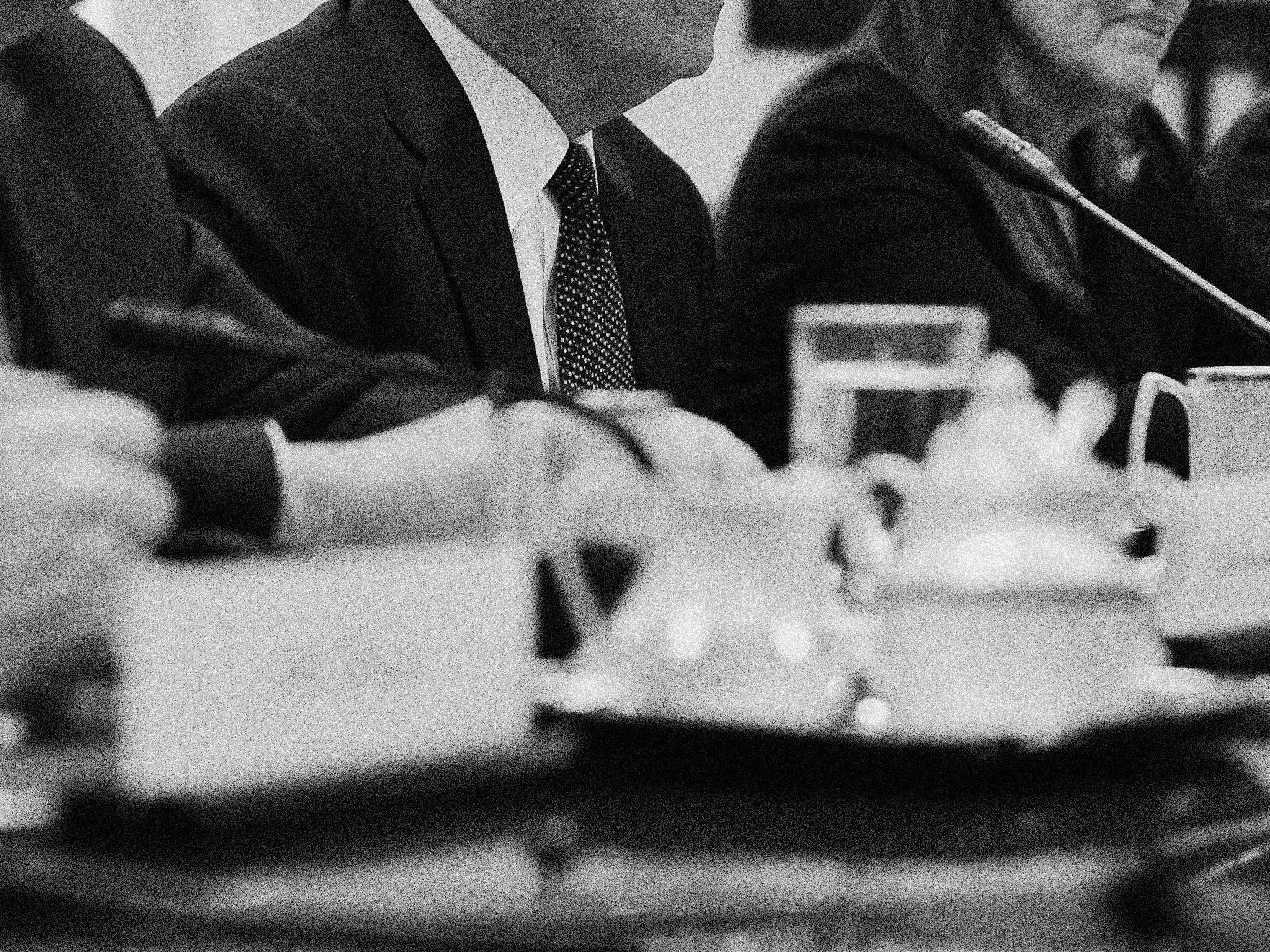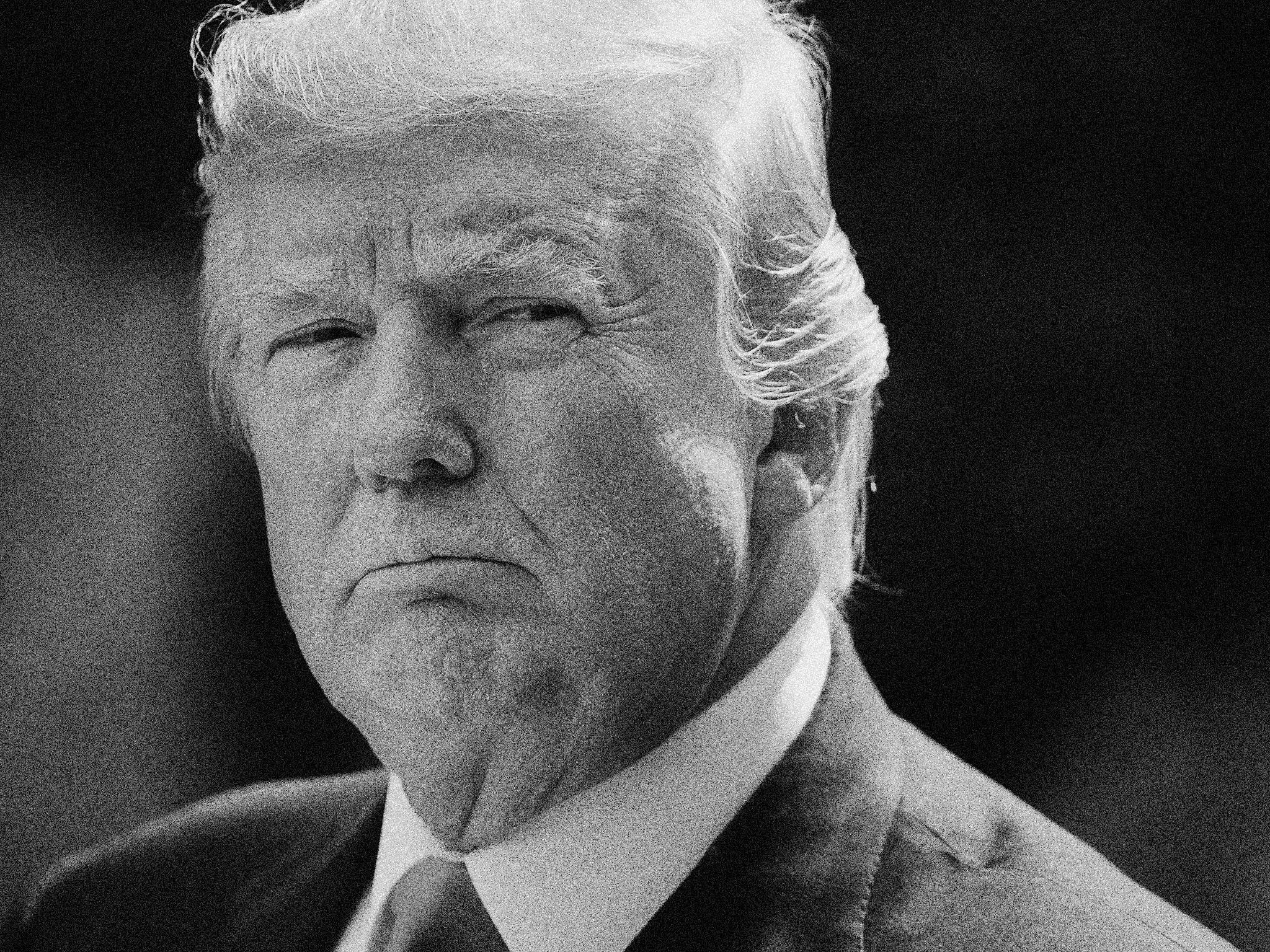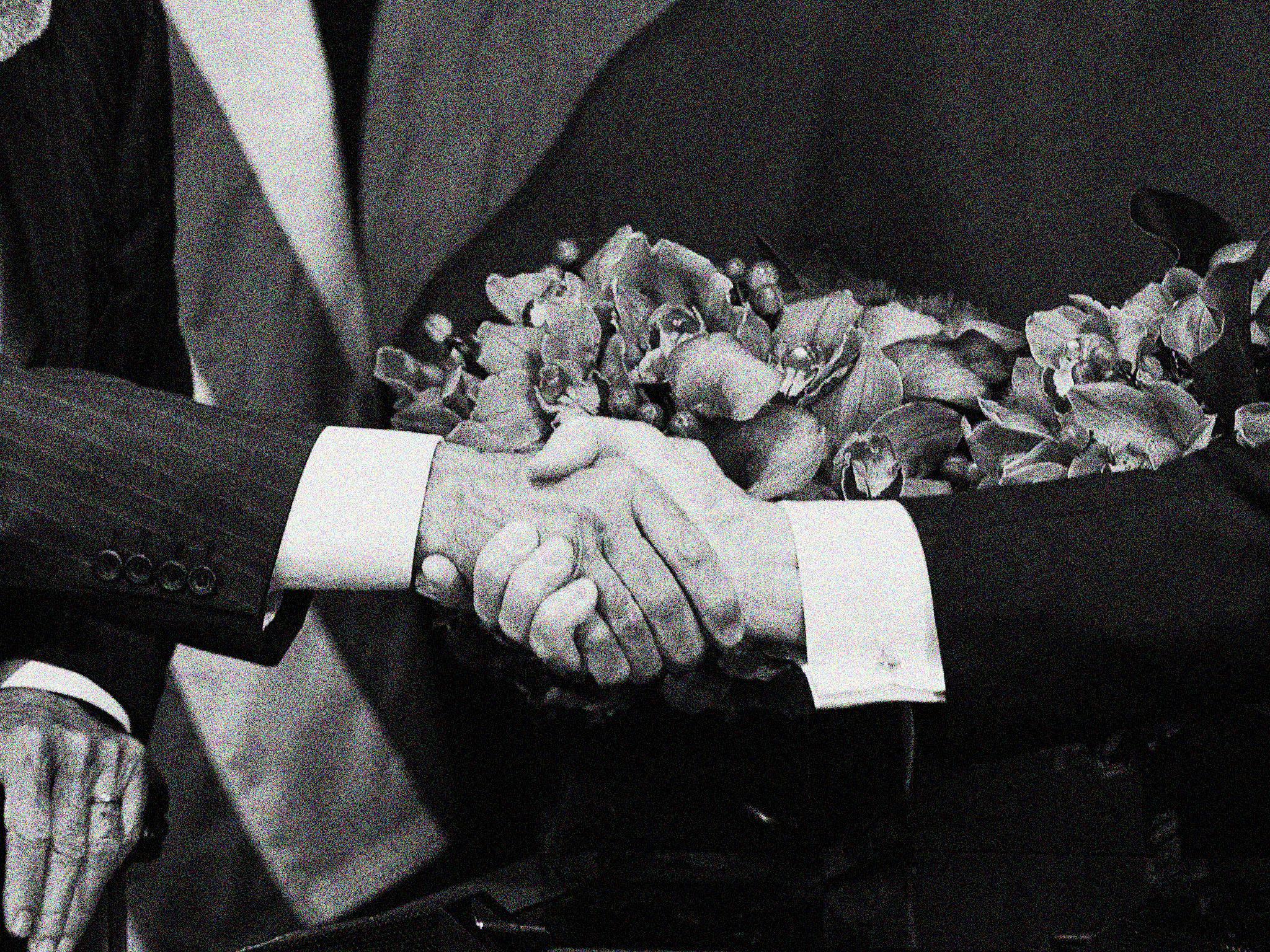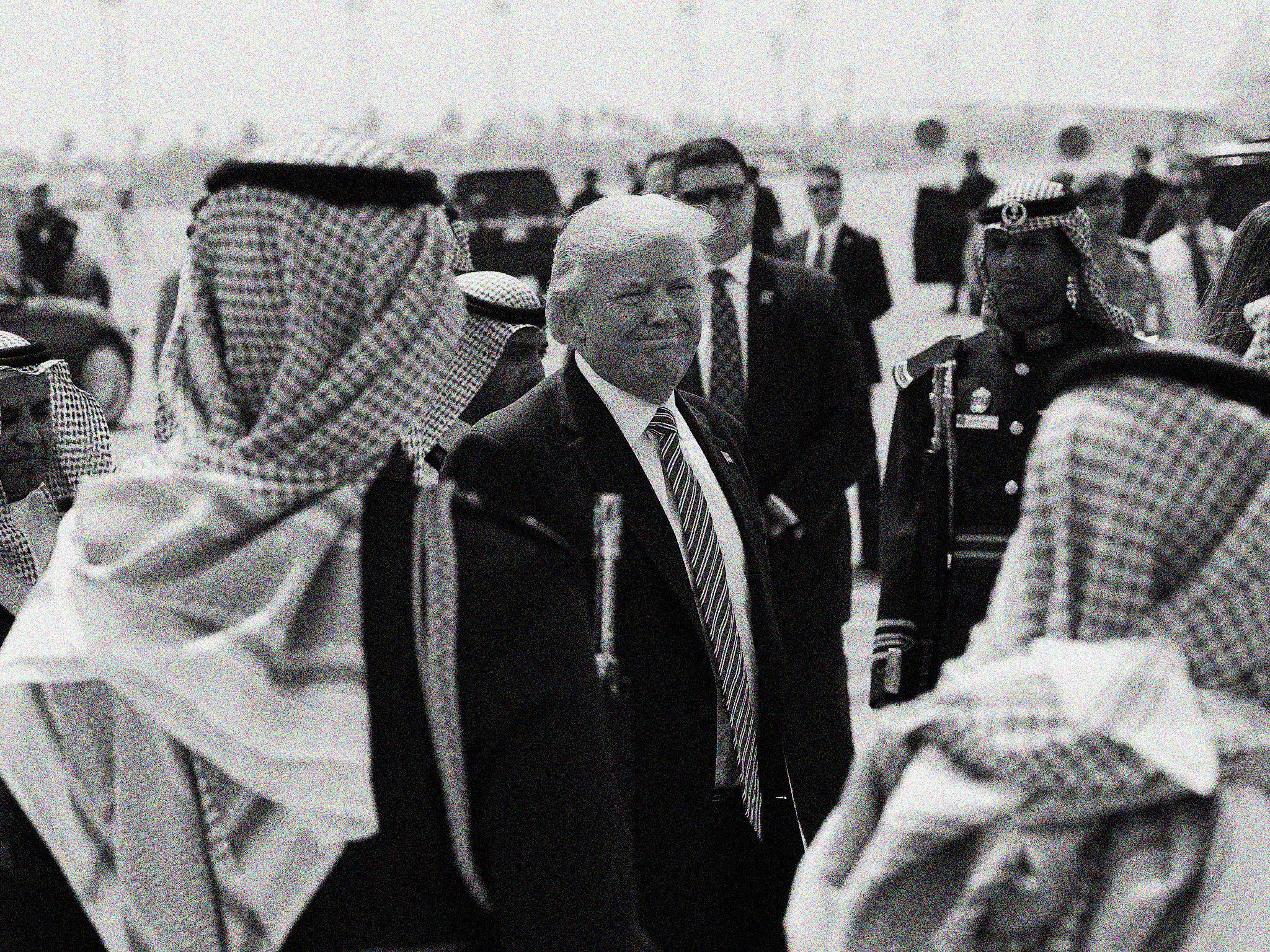How the ‘deep state’ is trying to undermine Trump’s incoherent foreign policy and save the world
It is unclear whether the uncertainty of the Trump era will end once he is out of the White House – but many current and former officials are trying to limit the damage he creates, writers Borzou Daragahi


With a chaotic style and mostly half-baked and incoherent thoughts – often expressed via tweets – Donald Trump and his allies have sought for more than two years to remake US foreign policy. Using the powers of the presidency, they have tried to bully nations, withdraw from international commitments and reward Trump’s personal pals.
But throughout Washington, a sometimes subterranean effort is underway to block his changes or blunt their impact. Some try to lobby the White House. Others reach out to other countries, even rivals, in attempts to prevent wars, economic ruin or simple misunderstandings. In rare instances, influential insiders despised by the Trump administration are taking it upon themselves to smooth over rough edges in the international relationships that are still intact.
For Trump, this is the nebulous “deep state” of bureaucrats and officials that he has said is seeking to undermine every aspect of his presidency. In reality, Democrats, foreign policy veterans and those with stakes in international challenges, such as climate change, publicly criticise Trump but privately attempt to reassure jittery allies, massage incoherent messaging and foil destructive policies.
“If we’re able to talk to US allies and remind them that Trump represents a weird little corner of foreign policy thinking, it’s mildly reassuring for them,” says Jarrett Blanc, a former official under president Barack Obama who specialised in Iran and Afghanistan policy.
Occasionally, individuals infiltrate the administration in an attempt to undermine or correct what they see as risky policy choices. “You just have to try your best in any system to put forward a policy that makes sense,” says one White House foreign policy official, who speaks on condition of anonymity. The official questioned the administration’s stance on a number of domestic and international issues but nevertheless signed up because “that’s the only thing anybody can do in this situation”.
Networks of shadow government types have always existed in Washington, gathering at think tanks when their party or faction is out of power to write papers and counter White House positions in media appearances. Former officials from different countries have met informally – privately or in public – to gain an insight into current thinking or pass along messages about their own government.
“There are always different ... efforts with varying degrees of connections to government here and there,” says an adviser to one 2020 presidential candidate. “They’re always out there talking, maintaining ongoing contacts, even as they try to keep the substance of the conversations private.”
But rarely – if ever – have those figures dotted around Washington taken on attempts to undermine, reshape or fill the gaps in White House foreign policy with the urgency that they have under Trump, a time marked by mass departures from the Department of State and the appointment of loyalists who often have little knowledge and experience.
“We’re in a very peculiar situation,” says Vali Nasr, a former dean at Johns Hopkins School for Advanced International Studies and a former White House adviser under Obama. “Institutional capacity is being degraded. There’s worry about policy coming off the rails and, essentially, the establishment outside is disconnected from the administration.”
Even members of Trump’s own administration say they often have to work around him, tossing their boss under a bus in order to get common-sense policies implemented.

“The people who are working for him read off Trump’s official talking points,” says Aaron Stein, Middle East director of the Foreign Policy Research Institute. “And then they say, ‘Ignore this guy.’”
Ahead of the 2020 presidential election many of the Democratic Party candidates are openly challenging both the substance and style of Trump’s foreign policy, attempting to reassure allies and foes of a return to previous diplomatic norms, and warning of the consequences of the current drift towards a more haphazard way of working.
“Today, based on the irresponsibility of our actions, our allies are losing faith,” John Delaney, a Maryland legislator and Democratic candidate for president, said during a forum this year. “If our global engagements continue to decrease and if we continue on our current trajectory, it could mean a dismantling of the security architecture of the world.”
* * *
Syria has been one major policy area where a vacuum has forced Mr Trump’s own staff, as well as those concerned about the future of the Middle East, to resort to unconventional means to prevent what they worry would be a disastrous course. At the root of the problem, say insiders, is a disengaged president who veers between authoritarian diktats and utter apathy.
“He’s not actually interested in governing,” says Stein. “He doesn’t oversee anything.”
Unlike the meticulous Obama, Trump outsources much of the nuts-and-bolts of foreign policy to deputies and then refocuses his attention on what really sparks his interest: the ups-and-downs of domestic politics, particularly what is said about him on cable television and in the press.
In the case of Syria, he delegated to James Jeffrey, a longtime career diplomat who has served throughout the Middle East under both Democratic and Republican presidents. Jeffrey took over earlier this year from Brett McGurk, who quit late last year after Trump announced a sudden withdrawal of US troops from Syria, as well as a further reduction in troops stationed in Afghanistan.
At first, Trump’s orders seemed ironclad. “We have defeated Isis in Syria, my only reason for being there during the Trump presidency,” he wrote in a tweet.
Nervous allies – some of them with boots on the ground alongside US forces – began voicing doubts. “If the policy of the United States, as a Nato ally, is to withdraw its contingent from Afghanistan, I personally do not think that Bulgaria has further business there,” said Krasimir Karakachanov, Bulgaria’s defence minister, earlier this year.
But the Pentagon and State Department, along with policy experts inside Washington, strongly disagreed and set about circumventing Trump’s directives.

First, the Pentagon pushed back against Trump’s directive that all 2,000 US troops in northern Syria be removed within 30 days, buying itself 120 days to take care of what they told the president was the logistics of an “orderly” withdrawal. Then began the internal lobbying, with many officials simply hoping that Trump would lose interest. Meanwhile, Jeffrey and his team reached out to France and the UK, who both have troops in northern Syria alongside the US.
“They’re going out to US partners saying, ‘Hold on. Hold the line. We’re trying to figure this out,’” says Stein.
As of last week, the 2,000 or so US troops inside Syria remained, as several other countries announced they would increase their contribution to the stabilisation effort. Meanwhile, Trump keeps saying a drawdown is imminent, as diplomats and military officials overseeing Syria keep crossing their fingers that Trump won’t again announce another policy shift.
* * *
Iran is another prominent foreign policy challenge where the “deep state” derided by Trump and his acolytes is struggling to smooth out what they say is a deeply flawed and dangerous policy. Goaded by Washington hawks such as national security adviser John Bolton, the Trump administration withdrew from the landmark 2015 nuclear agreement last year and applied “maximum pressure” on Iran in hopes of reopening talks and hammering out a “better deal”.
Western diplomats that are longtime allies of the US have been working behind the scenes to press Trump to ease up, as well as telling officials in Tehran to wait out this particular era in the White House. “They are attempting to explain to Trump’s folks, ‘Don’t go the route you are going,’” says Nasr. “Countries with a presence in Tehran are struggling to hold things together, to not let John Bolton have his way and get us into a war.”
Trump has fumed over meetings between former secretary of state John Kerry and Iranian foreign minister Mohammad Javad Zarif, accusing the former US senator of violating the hazily defined Logan Act by undermining his Iran policy.
“What I’d like to see with Iran, is I’d like to see them call me,” said Trump in May. “John Kerry speaks to them a lot. John Kerry tells them not to call. That’s a violation of the Logan Act. Frankly, he should be prosecuted on that. He’s talking to Iran, has many phone calls and many meetings, and telling them what to do.”
But insiders tell The Independent that Zarif has quietly conferred with dozens of former and current officials from both parties in Washington. They have aimed to glean insight about Iranian thinking and press Tehran to avoid escalating the confrontation by upping its nuclear programme, as it has begun to do over the last few weeks.
US elected officials also regularly meet with representatives of the EU or other partners and quietly map out ways to blunt the impact of Trump’s policies not just to avoid a war with Iran, but also to avoid permanent damage to relationships with longtime partners such as the UK, France and Germany over trade matters and Nato contributions.
“How far do you go criticising Trump overseas?” says the adviser to one 2020 presidential candidate. “This is not a normal president – so there is justification for doing that. There are Americans like me who believe in these relationships and who believe in these values.”

Business cards of defence and security officials from several European allies sit on the desk of Blanc. A negotiator on Obama’s team during the Iran nuclear deal, he now works at the Carnegie Endowment think tank. Blanc has been pilloried by Trump supporters for being part of the “deep state” undermining Trump’s policies. But in recent weeks he has been seeking to help the administration. Many countries with troops on the ground in Afghanistan had been nervous about the Trump administration’s signals and gestures, have been worried it was about to abandon the country and leave their forces hanging. They had sought meetings with administration and State Department officials, only to encounter silence.
Blanc has been meeting with nervous representatives of Nato nations to assure them that despite its destructive policies on trade and Iran, Trump’s Afghanistan policy was sound, and that talks between Zalmay Khalilzad – the US representative for Afghanistan reconciliation – and the Taliban were bearing fruit, and that European partners too should encourage them.
“My line is that if there’s something they’re doing right it is Afghanistan,” says Blanc. “But the current government of the United States is ill-designed to take advantage of any opportunity.”
* * *
Trump’s antics, via Twitter or at rallies, are losing their effect. Over the past two and a half years, many abroad have become used to Trump’s outrageous gestures and demands. “Some tweet comes out and foreign capitals would quake,” says one foreign policy insider. “Now they take it with a grain of salt.”
Many see current attempts by the “deep state” to hem in Trump as mixed. They may have prevented a chaotic withdrawal from Syria, but war with Iran remains a possibility.
“The reality is that this administration does not engage think tanks, it does not engage outside experts, it’s not open to influence, they also don’t listen to professionals in the administration,” says Nasr. Despite efforts to encourage Iran to wait out Trump, Iranians have said they are reluctant to take US advice. At this point, well-placed Iranian officials are operating under the assumption that Trump will be re-elected and they can look forward to dealing with him until 2024.
“Obviously Trump is a historical anomaly,” says Stein. “The question is whether or not we can get rid of him and whether we can begin the task of rebuilding.”
Trump’s antics, as well as the attempts to rein him in, have real costs. Trump’s aides – alarmed by his constant demands early in his term that the US should seize Iraq’s oil reserves – instead pressed him to insist that Baghdad should give US companies and employers preferential treatment for reconstruction deals, according to a former US official.

Acting on the policy, the Trump administration pressured Iraq to cancel a lucrative power-generation deal with the firm Siemens and instead consider General Electric. Iraq eventually went with Siemens anyway, but the delay meant angry Iraqis needlessly suffered through another summer of lengthy power outages.
It remains unclear whether the uncertainty and unpredictability of the Trump era will come to an end anytime soon. With an eye on polls showing his continued popularity in key states, many foreign policy hands are bracing themselves for an additional four years of Trumpian antics should he be re-elected in 2020.
Others, including the high-profile former French envoy to Washington Gérard Araud, have argued that Trump represents a historical shift, the end of the post-Second World War order and the beginning of something new.
“The question is,” says Blanc, “what part of Trumpism is symptom and what part is cause?”
Join our commenting forum
Join thought-provoking conversations, follow other Independent readers and see their replies
Comments